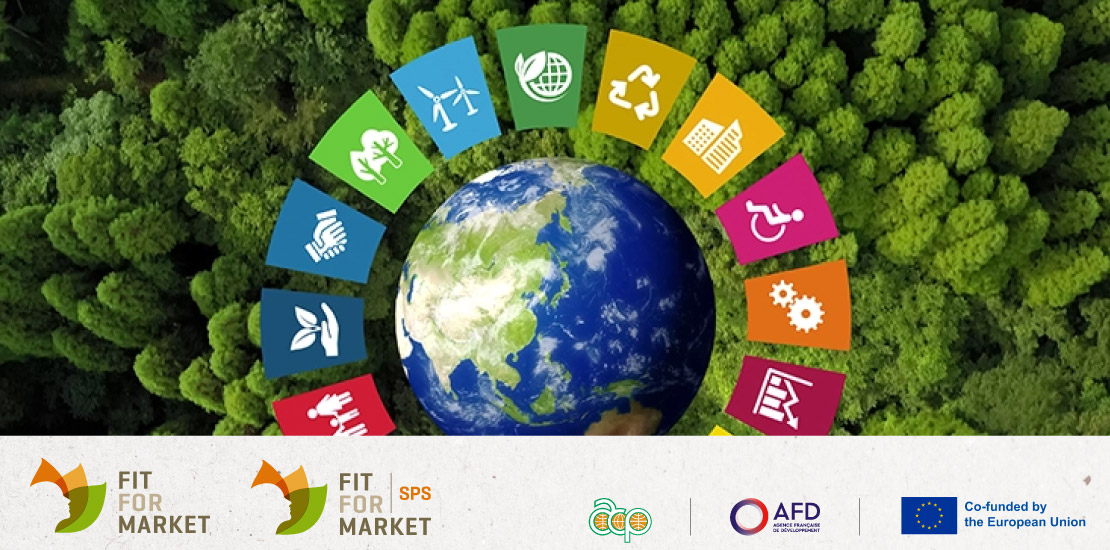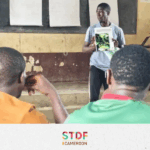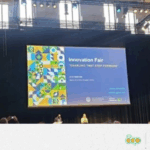- 10/04/2024
- Posted by: Sandra Borma
- Category: News

Final evaluation of the FFM and FFM SPS programmes
Launched in 2016 and 2019 respectively, the FFM and FFM SPS programmes have built on the valuable lessons learned from COLEAD’s previous initiatives, amongst other the Pesticides Initiative Programme (PIP & PIP2) and the Development of Food Safety Systems (EDES), funded by the European Union (EU), and the Organisations of ACP States (OACPS). With funding from the EU, the OACPS and the Agence Française de Développement (AFD) of €25 million for FFM and a contribution of €15 million from the EU and OACPS for FFM SPS, the FFM and FFM SPS programmes represent a strong commitment to sustainable and inclusive agricultural development in member countries of the OACPS, with a particular emphasis on the horticultural sector.
A final technical evaluation was carried out from September 2023 until February 2024, and consisted of an inception phase, a desk study phase and an intensive field mission phase in 11 countries where both programmes have been active : Surinam, Dominican Republic, Sénégal, Ghana, Togo, Cameroon, Uganda, Zimbabwe, Madagascar, Papua New Guinea and Fiji.
According to the evaluation team, the positive results of the FFM and FFM SPS programmes are largely due to COLEAD’s ability to adapt to different national contexts and to meet challenges such as the COVID-19 pandemic and changes in market access conditions. In particular, COLEAD’s ability to adapt its approach to the specific SPS policies of each country and to the particular needs of individual partner beneficiaries was considered remarkable.
COLEAD’s expertise and the quality of the capacity building support provided to all partners was highlighted, leading to recognised and measurable improvements in sustainability and SPS practices among partner beneficiaries. In addition, COLEAD’s strategic cooperation with other initiatives has been crucial in providing complementary support, demonstrating a commendable coordination effort that leverages the strengths of different actors towards common goals.
The FFM and FFM SPS programmes’ substantial contribution to market access, management skills, sectoral link strengthening, support for SPS compliance, fostering technical innovation, and promoting sustainable practices has led to tangible economic benefits (improvements in livelihoods, including education, food security, and household investments) and improved adoption of sustainable production practices among MSMEs and producer groups.
In terms of recommendations, the final evaluation highlights the need for COLEAD to pursue its decentralisation process, to strengthen field missions for improved information sharing, to foster more partnerships and to focus increasingly on the economic and commercial performance of operators in order to contribute to access to finance facilitation for MSMEs and producer groups.
Moving forward, COLEAD is incorporating the lessons learned and recommendations from these programmes for the implementation of current and upcoming interventions through member of the OACPS and beyond.
These positive results are an opportunity to thank the entire COLEAD team and its network of experts in the field, who together have contributed to these results. We would also like to thank our partners, the European Union, the OACPS and the AFD for their trust. This encourages us to continue our efforts to ensure that agriculture contributes to achieving the Sustainable Development Goals. That’s what our mission is all about.
This activity is supported by the Fit For Market and Fit For Market SPS programmes, implemented by COLEAD within the Framework of Development Cooperation between the Organisation of African, Caribbean and Pacific States (OACPS) and the European Union. Fit For Market is co-funded by the French Development Agency (AFD). This publication has been developped with financial support of the European Union and the OACPS. The content of this publication is the sole responsibility of COLEAD and can in no way be taken to reflect the views of the European Union or the OACPS.





